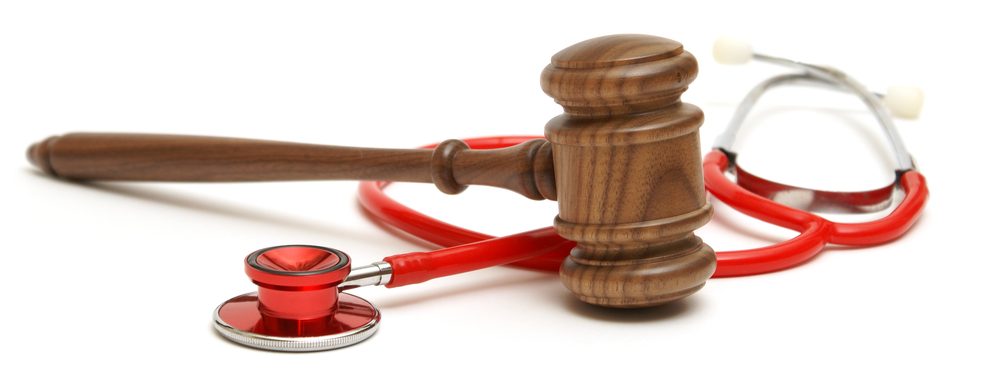In 1996, the drug Lipitor was released as a medication that lowers cholesterol and decreases the chance of stroke and heart attacks. Purchased a year later by Pfizer, it became one of the biggest selling drugs on the market. At its peak, it made the company $12.8 billion per year.
In 2012, on the back of several independent studies, the United States Food and Drug Administration (FDA) sent out warnings that the drug had a direct correlation to an increase in diabetes diagnoses. It was not until after this warning that Pfizer included such risks on its own documentation for patients.
To date, over two thousand cases have been brought before the courts arguing that Pfizer neglected to adequately warn patients of the risks while aggressively campaigning for the medication to be used over others.
If you or a loved one was taking Lipitor before 2012 and soon after developed diabetes while taking the drug, you may be eligible for compensation. We recommend talking to a lawyer in your jurisdiction who may evaluate your case and provide guidance regarding your situation. Many legal professionals are willing to bill on a contingency basis, only receiving fees if they are able to help you.
The following guide offers a broad overview of what Lipitor does, the legal concerns about its use, a short history of Lipitor lawsuits, and what you should do if you believe you were adversely affected by taking Lipitor.
The information below is general knowledge and advice and should not be taken as expert guidance regarding your health or legal rights. Please see your doctor before making any decisions to stop taking medication.
FDA Approval and Warnings
The initial approval for Lipitor was confirmed by the FDA in 1997 based on the prior success of other statins and the backing of Pfizer-funded studies that showed a clear lowering of cholesterol rates with no short-term side-effects. Warnings were given about small risks of muscle pains and diarrhea, while patients were warned not to consume grapefruit while on the medication due to interactions that may cause liver failure.
It was not until 2012 that the FDA released warnings that Lipitor increased the risk of diabetes in otherwise healthy patients, despite this information being known by Pfizer for years before. Lipitor continued to be packaged without these warnings until the FDA specifically requested a change to packaging labels.
Why Lipitor Lawsuits Are Warranted
Original labeling and prescribing information given to professionals and patients taking Lipitor contained no mention of diabetes or changes to blood glucose. If such information was given, patients would be given the opportunity to monitor their blood glucose or choose alternative medications. Even when the FDA insisted warnings were to be added, the patient information pamphlet read, “Increases in HbA1c and fasting serum glucose levels have been reported with HMG-CoA reductase inhibitors, including Lipitor.” The warnings did not explicitly mention diabetes, though this has now been changed.
Even when medical research provided substantial evidence to the contrary, Pfizer engaged in aggressive marketing claiming that Lipitor was safe to use. In 2002, the FDA gave a warning to Pfizer after it was found to be running misleading advertisements that suggested it was safer than other statins. In 2006, as the first research was coming to light, Pfizer changed the pricing on Lipitor to convince doctors to prescribe higher doses. In 2011, a Harvard Medical Study showed Pfizer was among many pharmaceutical companies providing financial compensation to doctors who prescribe their drugs.
Diabetes is considered a life-changing disability with long-term debilitating consequences, including kidney disease, blindness, and stroke. Those who develop diabetes have a decreased lifespan and may require constant medication to remain well. Diabetes can even cause acute and deadly events due to hyperglycemia.
Your Next Steps
If you are concerned about how Lipitor may have played a role in your development of diabetes, it is important to seek medical advice and treatment as soon as possible.
Your doctor, however, is not a legal expert. Regardless of their advice, you should speak to a local lawyer about the compensation you may be entitled to and what possible legal recourse you may have.
How Do I Know if I Qualify to Be Part of a Risperdal Lawsuit?
If you took Lipitor before 2012 and developed diabetes while under that medication, you may be eligible to be included in a Lipitor lawsuit. After previous cases, lawyers are particularly concerned to find patients that fit the following criteria. If you took Lipitor and fit any single one of the following criteria, please contact a lawyer immediately:
- Females of postmenopausal age.
- Patients taking 80mg or more of Lipitor when diagnosed with diabetes.
- Patients with no family history of diabetes.
- Patients who were of a healthy weight and no previous risk factors of diabetes at the time of diagnosis.
When you speak to your lawyer, it is helpful to have a copy of your full medical records as well as a timeline of events. Any information given is protected by lawyer-client confidentiality.
How Does a Lipitor Lawsuit Work?
If your lawyer determines that there is enough evidence, they may agree to take on your case. In civil matters such as this, most lawyers work on a contingency basis; they will not require fees unless you are awarded damages.
Your lawyer may decide to file a lawsuit or find a similar lawsuit to join. Class action suits like the Multidistrict Litigation of 2013 may involve many people working together to build a case and can help you feel less alone in your struggle.
Civil lawsuits may take years, with many loopholes to jump through. While your lawyer will do most of the work, be mentally prepared for a lot of interviews, paperwork, and even the possibility of drawn-out court appearances. While you are not required to appear at court, it may be beneficial for your settlement.
Do I Need a Lawyer to Join a Lipitor Lawsuit?
While it is not strictly necessary to have your own lawyer, we highly recommend obtaining the services of one. The legal system is a complex machine and requires not only a high level of understanding but relationships and how to navigate the tiers of the justice system. Your lawyer will also potentially guide you to be part of a class action, where you will join forces with other plaintiffs to help present a stronger case.
Not having proper representation will become a stumbling block to justice. As many lawyers are happy to work on contingency (that is, they won’t be paid until you are), there are no negatives to obtaining a lawyer to help you through the complicated process. Be assured that Pfizer keeps dozens of lawyers at their disposal and beginning a lawsuit against a company of that size will require resources beyond a single individual’s ability.
How Long Does It Take to Settle a Lipitor Lawsuit?
Given the resources of pharmaceutical companies, the complex process of lawsuits, and the ongoing cases currently being tried, a lawsuit started today could conceivably take over a decade to settle. The average length of a lawsuit is anywhere from one to three years, although pharmaceutical lawsuits are more likely to take longer.
What Is the Statute of Limitations on a Lipitor Lawsuit?
The “Statute of Limitations” is the amount of time after an event that you can bring a lawsuit against a party. In the case of Lipitor Lawsuits, this would be time after you were diagnosed with diabetes.
The statute of limitations is different in every state and can range from 1 to 10 years. It is important to discuss with your lawyer if your circumstances fall under the statute. Where you started taking the medication and where you were diagnosed with diabetes can all play a role in this decision making, so it can often be more complex than you first think. If you think you’re eligible, it’s best to consult a lawyer first.
How Much Can You Get From a Lipitor Lawsuit?
Settlements for lawsuits against pharmaceutical companies have ranged from thousands to tens of millions of dollars. Awards are generally determined by how much damage has been caused to you and how negligent the company has been. Every case has its unique circumstances that make this number hard to estimate.
It is important to know that there has yet to be a settlement amount for any lawsuit related to Lipitor’s role in diabetes. This means it is difficult to assume how much would be possible.
How Long Does It Take to Get Your Money After You Settle a Lawsuit?
Even after settlement, it may take some time before you see any money. First, the defendant has the right to appeal any decisions to higher courts. If, however, the appeals process has finished, the money will be cleared for payment and sent out within six weeks.
The first step after receiving money is to pay any and all medical expenses currently outstanding. This includes reimbursing any expenses already paid since you were diagnosed.
The remaining money from the settlement is sent to the lawyers for the plaintiff, who will take a fee as already decided between you before the case. This is generally a percentage of the final settlement and no other legal fees will be required.
It is not unusual for it to take months after a settlement to receive payment, but it is extremely rare for there to be issues with receiving money after your settlement. The law protects all plaintiffs from being taken advantage of during this process.
The final amount for settlement can be sent by mail or retrieved from your lawyer’s office as a check.
A History of Lipitor Lawsuits
Pfizer is no stranger to litigation from patients and other companies alike. With thousands of cases specific to Lipitor, as well as relevant cases in regards to other medications, Pfizer has been placed in the position of having to answer for its actions regularly.
Mazzariello and Wilson Litigation (2006)
In 2006, two separate cases were brought before American courts claiming that Lipitor use caused neurological symptoms, including early-onset dementia. Neither case succeeded.
Future medical studies came to find that Lipitor does cause a short-term decrease in memory and neurological side effects when first taken, but has no detrimental long-term consequences on brain function. There is currently no link found between statins and dementia.
Multidistrict Litigation (2013-2019)
Between February 2012 and April 2013, a large number of cases began to appear across the country, claiming that the plaintiffs had developed diabetes due to taking Lipitor. In April of 2013, lawyers successfully lobbied to have the cases tried as a “Multidistrict Litigation” (MDL). This allowed a compiling of resources, including expert testimony and legal fees.
By Feb 2014, these cases were joined by over 100 more and the Federal Court decided to try all cases under a single trial in South Carolina. The case was to begin in 2015 but was delayed for several months.
By March 2016, the court excluded expert testimony and testimony of almost all the plaintiffs, despite the reputation and credentials of the doctors that took the stand. This exclusion was based on a failure to provide causal evidence, rather than correlation (or proof that the cause of each specific case of diabetes was due to Lipitor).
The only testimony that remained was that of the epidemiologist Dr. Singh, who was able to convince the court of the causal link between 80mg Lipitor and diabetes. However, no plaintiff at the time had been taking that specific dose.
In 2016, the court remanded some cases back to their state courts while dismissing the overall case. The plaintiffs appealed but in 2018, the decision was upheld by the Federal Court of Appeals.
Continuing Lipitor Lawsuits
A number of cases from the 2013 MDL now continue separately across the country while a multi-plaintiff case involving 23 patients is currently running in New York. Lawyers are still keen to hear from patients who believe they have developed diabetes while taking Lipitor before 2012.
Baycol Settlements (2007)
By 2007, pharmaceutical giant Bayer paid over one billion dollars to settle against 3000 patients. Its own statin, Baycol, had been found to cause a condition that erodes muscle tissue. Fortunately for Pfizer, neuromuscular conditions were already listed on its warning labels at the time.
Seroquel Settlement (2011)
In 2011, AstraZeneca paid over $600 million to settle nearly 30,000 lawsuits that provided evidence it’s antipsychotic medication, Seroquel, increased the chance of diabetes in otherwise healthy patients. This settlement was easier to prove and litigate as there are no medically-evidenced links between mental health disorders and high cholesterol.
Celebrex and Bextra (2016)
In 2016, Pfizer paid close to half a billion dollars to settle a shareholder lawsuit after incurring financial losses when they covered up the safety risks associate with taking Celebrex and Bextra. Both pain relievers were shown to increase the risk of heart attacks and strokes. This precedence of covering up safety risks may be used as evidence of common corporate practices by the company.
What Is Lipitor?
Lipitor is the brand name of the medication atorvastatin, a cholesterol-lowering drug discovered in 1996. Belonging to a group of medications known as “statins,” the creators argued that Lipitor was more effective than contemporary choices at lowering Low Density Lipoproteins (also known as LDLs, or “bad cholesterol”) and decreasing the chance of stroke. In 1997, Pfizer acquired Lipitor along with several other medications and began an aggressive marketing campaign to doctors and hospitals across the country. By the 2010s, Lipitor was making over $10 billion every year.
In 2011, atorvastatin became available as a generic medication, sold by other companies.
The Science of Cholesterol and Statins
Medical science is a complex topic and sometimes it is difficult to find the truth among the TV doctors and pharmaceutical company advertising. However, by understanding what cholesterol is, how it can affect our body, and how statins can benefit us, we can better appreciate why doctors have prescribed Lipitor so regularly and how Pfizer is responsible for ensuring its safety.
What Is Cholesterol?
Cholesterol is a fat-like substance produced by our liver and found in healthy blood. There are two main types of cholesterol. High-density Lipoproteins, or HDLs, are sometimes known as “good cholesterol.” They help to “clean” our blood vessels and prevent blockages that can lead to heart attacks and strokes. Low-density Lipoproteins, or LDLs, are stickier and can latch onto the walls, causing those very same blockages. Having high overall cholesterol or high LDLs can seriously increase your risk of heart attacks and strokes, and decrease your lifespan by years.
How Do We End up With High Cholesterol?
More than 1 in 10 Americans have high cholesterol. The most common causes of high cholesterol are obesity, diets high in saturated fats, and sedentary lifestyles. A small number of patients with high cholesterol have familial hypercholesterolemia, a genetic condition that causes an increase in LDLs even in healthy, active people. All adults should have a blood test to check cholesterol levels yearly.
How Can We Lower Cholesterol?
The best way to lower cholesterol is by changing our diets and exercise. Eating more fish provides a diet high in Omega-3, which has been shown to lower cholesterol as well as improve brain function. For this reason, some doctors recommend taking “fish oil tablets” before moving to more serious medications.
While statins such as Lipitor are the most common medication used to decrease cholesterol, there are a range of other options, including PCSK9 inhibitors, bile acid-binding drugs, and fibrates. Each drug has a different way of lowering cholesterol in the blood.
How Does Lipitor Lower Cholesterol?
Cholesterol is formed in your liver by an enzyme known as HMG CoA Reductase. Statin medications block the action of this enzyme, decreasing the overall production of cholesterol. Statins also help make sure that cholesterol that already sticks to our blood vessels don’t suddenly break off and cause the clots that lead to strokes and heart attacks.
What Is the Difference Between Lipitor and Other Statins?
The differences between Lipitor and other statins are minor, and some research suggests that while Lipitor is more effective than other similar medications at lowering LDLs, this comes at the cost of increased side effects. Other research suggests that while Lipitor lowers LDLs, it does not lower the likelihood of heart attack or stroke.
Research Into the Side Effects of Lipitor
While early research into Lipitor indicated cholesterol reduction greater than other statins, other research at the time showed that generic statins had the same benefits in reducing the likelihood of stroke, the number of heart attacks experienced by patients, and overall mortality.
From 2006 onwards, several studies indicated an increased risk of diabetes in patients using statins. This culminated in a 2011 metastudy covering over ninety-thousand patients which showed a significant increase in diabetes among those patients who took statins compared to those who did not. These studies continue to be confirmed with a recent 2018 study of close to two million patients showing that the specific risk from atorvastatin increases with dose.
In 2012, a landmark study found that Lipitor use in postmenopausal women increased the chance of newly-onset diabetes by close to fifty percent. This study took into consideration other factors, including weight, diet, genetic indicators, and age.
What Is Diabetes?
Diabetes Mellitus is a disease in which the pancreatic hormone, insulin, fails to help the glucose in our blood be absorbed into our fat cells. This can cause a range of issues, including strokes, blindness, kidney failure, and nerve damage. Statins specifically are shown in correlation to Diabetes Mellitus Type 2, in which the pancreas creates insulin, but it is ignored by our fat cells.
Wrapping Up
To conclude, if you developed or were diagnosed with diabetes while taking Lipitor, you may be a candidate for compensation and should consult with a lawyer. Payouts can be meaningful, and there’s no way to know if you are a candidate other than consulting with a lawyer.





